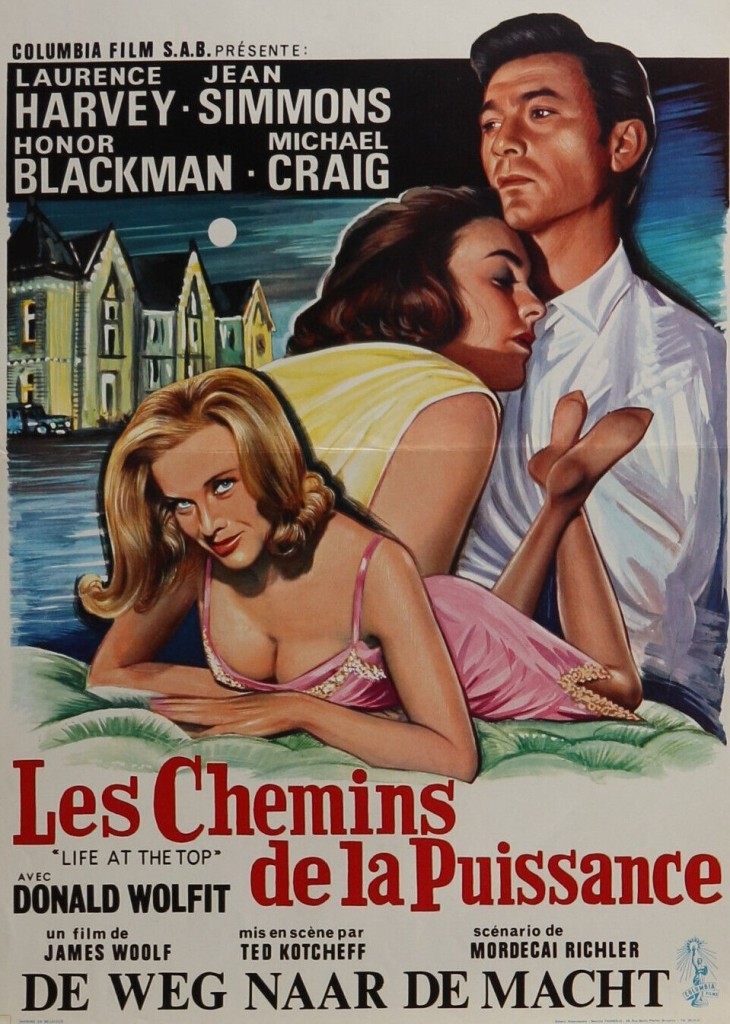If you were astonished that musical Les Bicyclettes des Belsize (1968) was the debut of action director Douglas Hickox (Sitting Target, 1973, Brannigan, 1975) you might be knocked sideways to discover Bob Clark of Porky’s (1981) fame cut his teeth on this tale of cross-dressing. Perhaps even more astounding is that what appeared little more than a cheesy sexploitation number has now come into its own as a plea for understanding for those taking a different sexual path in life.
Bookended by one of those tropes popularized by Alfred Hitchcock via Psycho (1960) of a psychiatrist making sense of the characters for an audience unfamiliar with their predilections, the narrative itself while on the preposterous side does highlight how vulnerable anybody back in the day for displaying what was then known as “perversion” – punishable by law – was to blackmail.
And in keeping with Hickox, Bob Clark’s tale shows considerable artistry. It might be the only film of the decade to pay homage to Arthur Penn’s Mickey One (1965), in particular the scene where Warren Beatty on stage is dazzled by a spotlight that also serves to hide his interrogator. Clark takes this notion one stage further. In one sequence the screen is completely black with the face of Lt Albert Rose (Leslie Marlow), the victim, a small white blob.
I should also mention a quite astonishing cabaret act which sees performers dressed in outsized top hat and tails, the hat perched so high that there’s room to draw a face on the upper torso. The credits scene is worth noticing as well, a woman in silhouette stripping, except that the punchline is she’s a man.
The story is crude, but I guess for the times the only way to show that people wishing to express a part of their character that would be alien to others had to pretend that they were giving in to outside forces rather than sexuality being their own choice. And it takes the view that any male, given the opportunity to explore their feminine side, might be grateful.
Anyway, the plot begins with macho soldier Rose who surrounds himself with beautiful women being blackmailed by Dominique (Dorian Wayne) for deserting in the line of fire in Indo-China in 1951. In return for keeping quiet, Dominque extracts payment of $20,000 and an agreement that Rose spend a year as her maid. The lieutenant has been chosen for a more sinister purpose, to blackmail his senator father and his commanding officer.
Initially resistant, when Rose starts taking estrogen and underghoes “transformation” – eyebrows plucked, all body hair shaved, make-up applied, and wearing a typical male fantasy maid’s outfit – he begins to become comfortable with his feminine side. The point is pointedly made – and repeated in the coda – that cross-dressing does not turn him into a homosexual for he falls in love with Dominique’s assistant Ruth (Wendy Roberts). This doesn’t quite ring true since Ruth is a professed lesbian, and blackmailed for being so, and it seems a stretch to imagine that if she’s forbidden to enjoy true sapphic love she would make do with a feminine-type male.
I should also point out that Dominique is indiscriminate in her determination to transform. Women are turned into men as well as men turned into women. Which also poses a plot hole, or perhaps makes a more subtle point in suggesting Ruth is actually a man who convinces himself he’s really a lesbian. Either way, it’s not particularly clear.
I was hoping that Louise C Pessalano, head of “Psycho Research,” the aforementioned bookender was a genuine psychiatrist or expert in sexual mores but it turns out he’s an actor, best known for The Farmer (1977). Even so, the points he makes remain valid half a century later and possibly even more vital in these times when issues of sexuality are more prominent. He asks the audience to sympathize with people who are perhaps haunted by “unexplainable drives and anxieties that constantly haunt them.” The case study, “File 743,” shows that Rose, though a cross-dresser, has a “normal” male sex drive while Dominique “show an unnatural desire for power.”
Examining this film from a modern perspective, you would at least feel sympathy for characters trapped into living their life in the shadows, terrified of their own desires, aware of the damage revelation could inflict on life, marriage and career. It’s certainly not terrible and given the obvious budget restrictions Clark uses lighting as if making a silent movie.
Worth a look on Youtube.

























